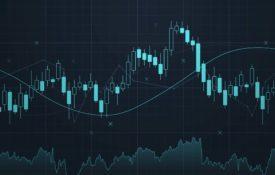-
Position Statement on Academic Freedom
The Association for Psychological Science (APS) affirms the value of academic freedom, which is the freedom of academic psychological scientists—and those from other disciplines—to produce and disseminate knowledge through research, teaching, practice, and service without undue constraint. Academic freedom is essential to advance the common good and the search for truth. APS Members must comply with all relevant codes of ethical behavior in psychological science with respect to the pursuit of academic freedom. Adapted from the April 2013 statement of the Association of American Universities and the mission of the American Association of University Professors.
-

Visualize Data to Communicate Science With Students, the Public, and Policymakers
The latest issue of Psychological Science in the Public Interest explores the good and the bad of data visualizations and how public understanding of science can improve if researchers adopt better visualization techniques.
-
As We Live Longer, How Should Life Change? There Is a Blueprint.
The majority of children born in the developed world now have a good chance of making it to their 100th birthday. They are also on track to live, learn, work and retire in systems and institutions that were set up when their grandparents were children.
-
Do Callous Personalities Win In Business? New Research Suggests Not
A new article published in the academic journal Personality and Individuals Differences casts doubt on a widely held assumption in the professional world — that cold and unsympathetic individuals are more likely to rise to the top of the corporate ladder. If anything, the data suggests the opposite. “There is this public opinion or belief that psychopathy is related with higher success — that individuals high on psychopathic traits would be successful CEOs or politicians,” says Hedwig Eisenbarth, a psychologist at Victoria University of Wellington in New Zealand and lead author the research.
-
What Children Lose When Their Brains Develop Too Fast
The great Swiss psychologist Jean Piaget used to talk about “the American question.” In the course of his long career, he lectured around the world, explaining how children’s minds develop as they get older. When he visited the U.S., someone in the audience was sure to ask, “But Prof. Piaget, how can we get them to do it faster?” Today it’s no longer just impatient Americans who assume that faster brain and cognitive development is better. Across the globe, as middle-class “high investment” parents anxiously track each milestone, it’s easy to conclude that the point of being a parent is to accelerate your child’s development as much as possible.
-
We’re Living Through the ‘Boring Apocalypse’
It could have been a scene straight out of an apocalyptic horror movie. When the World Health Organization declared the Omicron variant of the coronavirus a “variant of concern” in late November, borders closed, markets tumbled and warnings spread about how this new threat could ravage the world’s population. And then … many of us went right back to whatever we were doing. In a poll of Americans conducted from Dec. 3 to Dec. 6, almost all — 94 percent — had heard of Omicron.

